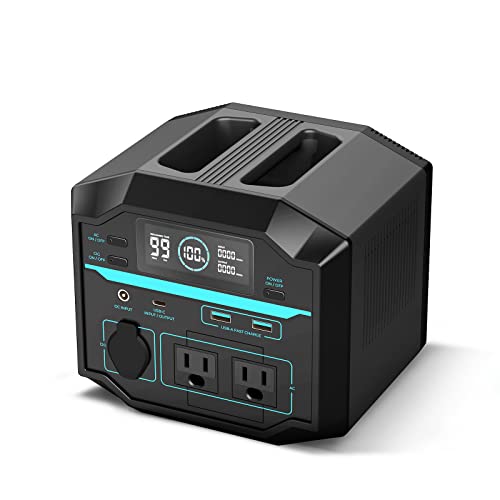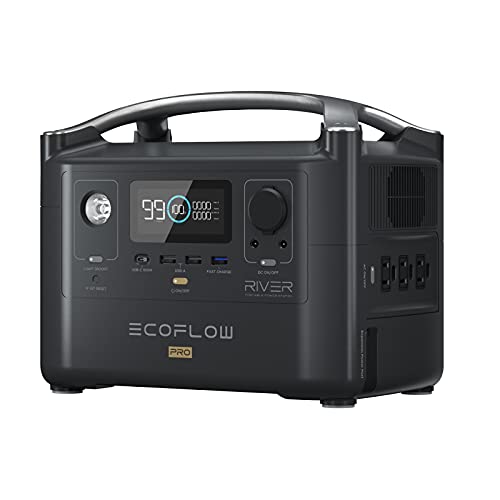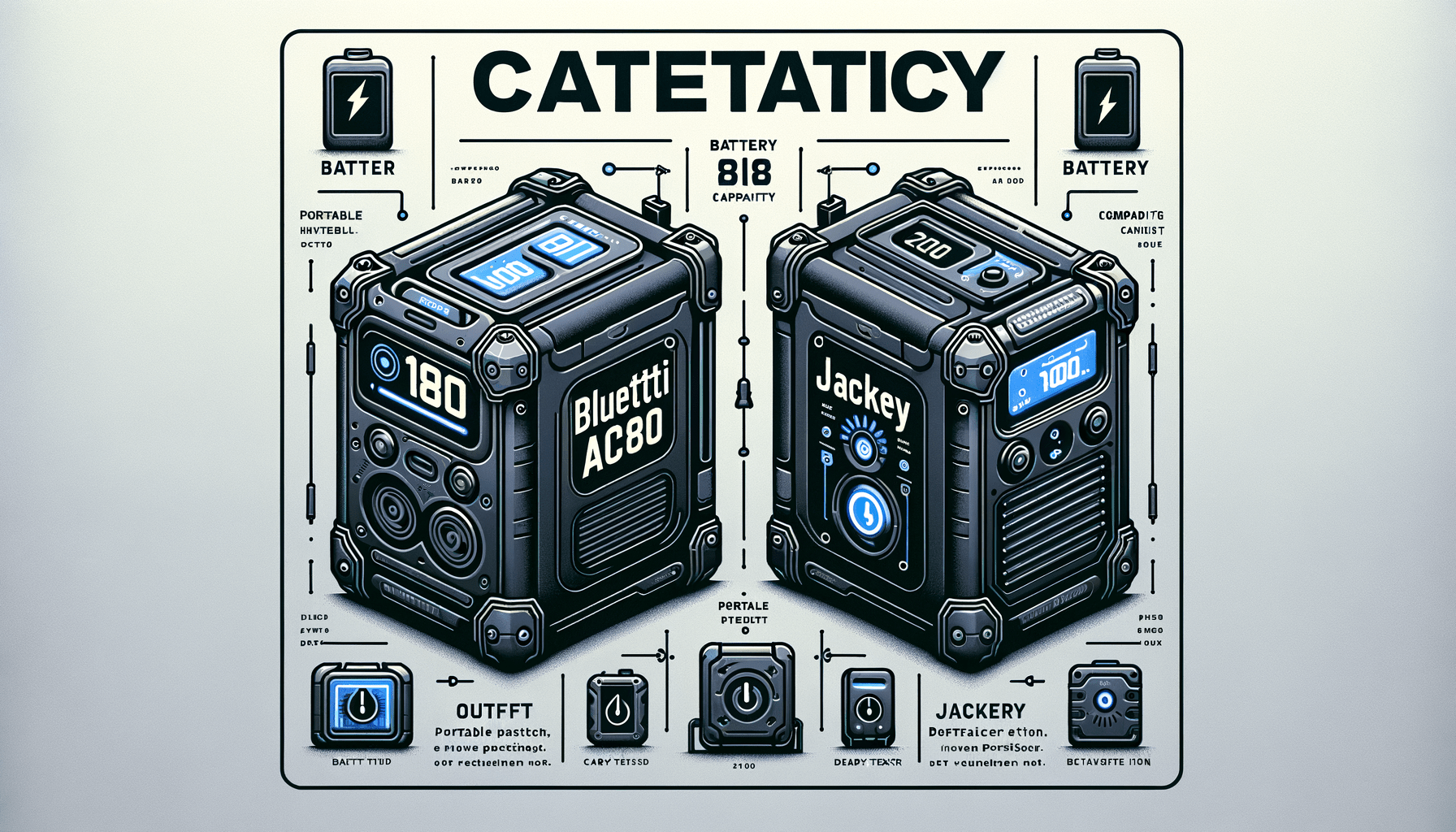In the quest for the ultimate portable power source, outdoor enthusiasts and emergency preppers alike scour the market for the best product. Enter the technical titans: the Renogy 200 and the EcoFlow River Pro. These powerhouses promise to keep your devices juiced up when traditional power fails or simply isn’t available. But which one suits your needs? Let’s plug into the details and compare.
Diving into the Specs
Specifications are the heart and soul of any technical comparison. Here, we break down what each portable power station brings to the table, including their power capacity, output, charging methods, and more.
| Feature | Renogy 200 | EcoFlow River Pro |
|---|---|---|
| Battery Capacity | 222Wh | 720Wh |
| AC Outlet | 200W with 400W surge | 600W with 1200W surge |
| Cycle Life | Undefined | 800+ cycles to 80%+ capacity |
| Weight | 5.3 pounds | 16.8 pounds |
| Dimensions | 7.48 x 6.10 x 6.99 inch | 11.4 x 7.1 x 9.3in |
| Charging Methods | AC, USB-C, Car, Solar | AC, Car, Solar |
| Max Charging Speed | 80% in 1.5 hours | 100% in 1.36 hours |
| Expandable Capacity | No | Yes (to 1440Wh with extra battery) |
| Output Ports | 6 combined types | 10 combined types |
| Remote Operation | No | Yes |
| Complementary Accessories | Various Solar Panels, carrying cases | Solar Panel (110 W each), Extra battery |

High-Level Overview
The Renogy 200 delivers a lightweight and compact power solution. Portable and user-friendly, it’s crafted for the casual user or minimalist camper. Conversely, the EcoFlow River Pro, with its higher capacity and output, is akin to carrying a mini power grid wherever you roam, ideal for the tech-savvy outdoor aficionado or the preparedness guru.
Charging On The Go
Mobility without power is frustrating, hence the need for efficient charging. While both devices offer solar panel connectivity for the eco-conscious, their recharging times differ. The Renogy powers up to 80% rapidly, but the River Pro gains a full charge in almost the same span, making both units competitive.
Expanded Power for EcoFlow Users
The EcoFlow River Pro’s expandable battery capability stands out. It’s an upgrade into a realm of power the Renogy simply doesn’t venture. Great for longer trips where power needs escalate, this feature is a game-changer for some.
What’s The Power Output?
Identifying which devices you can juice up and for how long is crucial. While Renogy’s inverter reaches a 200W continuous output, the River Pro amps up to 600W, handling higher-powered gadgets effortlessly. Need more? The X-Boost technology propels the River Pro further, allowing it to power appliances ordinarily outside its weight class.
Ease of Use and Accessibility
Besides power, convenience is king. The Renogy 200 is user-friendly with its lightweight design and clear LCD. The River Pro raises the bar with a mobile app for remote management—tech meets convenience.

Sustainable Solutions and Safety
Both stations have a nod towards eco-friendliness, especially with their solar charging options. Safety features like BMS (Battery Management Systems) ensure your expedition doesn’t end with a spark. Renogy’s Multi Intelligent BMS and EcoFlow’s advanced battery chemistry promise you reliability and peace of mind.
Cost and Value
While this comparison delves into technical prowess, the cost is often a deciding factor. The Renogy 200’s appeal lies in its affordability for the power and portability it offers, whereas the River Pro, although pricier, justifies its value through significant power expansion and smart features.
The Verdict
Ultimately, your choice between Renogy 200 and EcoFlow River Pro boils down to your power needs, mobility requirements, and how deep your pockets are. The Renogy is perfect for simplicity and light travel, while the EcoFlow is for those who crave more power, expandability, and technological control.


Leave a Reply